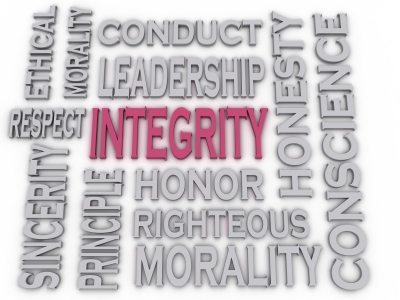On September 18th, 2018, the Critical Mental Health Nurses’ Network (CMHNN) – a forum for psychiatric nurses to think critically about their role within the mental health system – posed the following question:
‘… should there be a right for individual mental health nurses to object to taking part in forced treatment as a matter of personal/professional conscience …?’
In effect, the CMHNN is asking whether it would make sense for psychiatric nurses to be given the legitimate opportunity to opt out of involvement in coercive psychiatric practice if it was deemed to be at odds with their moral and ethical beliefs. Could this specific question trigger one of the most radical – and potentially influential – campaigns to change the landscape of biomedical psychiatry? 
The journey towards a more compassionate and enabling response to human distress has been excruciatingly slow. Despite decades of evidence (from science and personal stories) in support of the view that Western psychiatry’s biomedical practices benefit few and harm many, the ‘illness like any other’ approach stubbornly resists change and remains dominant within our mental health services. A prominent engine room for maintaining the status quo is the Mental Health Act (1983, 2007), with its assumptions that ‘mentally ill’ people harbour internal defects that render them unable to make informed decisions and its subsequent sanctioning of the incarceration of law-abiding people (see a previous blog for further discussion).
We urgently require action that will grab media attention, jolt us out of our collective apathy and act as a catalyst for us all to question why we collude with legalised discrimination against those unfortunate people tagged with a ‘mental disorder’. Psychiatric nurses conscientiously objecting to forced psychiatric treatment would potentially achieve these aims.
There are precedents for ‘conscientious objection’ in Western healthcare. For example, in the United Kingdom, nurses and midwives can legitimately opt out of involvement in abortions and technologies aimed at increasing the likelihood of conception if these medical procedures are at odds with a practitioner’s moral and ethical beliefs (Nursing & Midwifery Council, 2015). Other parts of the world also permit opt-outs on the basis of conscience, typically around reproductive activities and end-of-life care.
The current question posed by the CMHNN is striving to ‘begin a profession-wide conversation’ about the prospect of psychiatric nurses being given the option of a conscientious refusal to engage in coercive treatment. As such, it represents a small and tentative first step towards providing the largest professional group within the mental health system an opportunity to visibly demonstrate their unease about implementing the requirements of an inherently discriminatory Mental Health Act. Over the next few months, it will be interesting to monitor the reactions of psychiatric nursing (and other professional groups) to this exciting initiative. And brace yourselves for an energetic backlash from the psychiatric establishment should conscientious objection gather momentum.
Photo courtesy of David Castillo Dominici at FreeDigitalPhotos.net




Good on ya Gary, I spent a bit of time in Facebook getting to connect with the nurses of MH- on the Safe-wards site on face book, and i used to try to get them to see that if they were to be saving people, as opposed to managing and forcing people, how they all would benefit, as opposed to how nasty and ugly it is for everyone when people are being stood over, or when people are standing over people, knwoing over 50% are angry and saying their not even what their being named and shamed with, poisoned with, for, and are being abused and harmed, who needs that, no one needs that, not even them, and how much better would everyone be, feel, if everyone was going to get well, and didnt have to be stood over, poisoned, and how good or how much better they too would also feel, for the staff, ive probably repeated that, but yeh i always got 2 3 or 4 ticks, so in that sense their was always some who really did want it to be that saving, non coercive way, that’s for sure, in the end i left cause i felt i was like the enemy in the camp a bit, i gave it a go for a while though, and im sure i was influencing some of them, i was even asked by their leader if id stay, cause he liked the way i went about it,he like my lingo, think he knew my heart was in the right place, but either way, your spot on Gary, people want to be saved, & people want to save, they want and need hope, they don’t want or need to be stood over by anyone, or managed by anyone, some dont mind, but the majority do, and the majority always matters more than not, the not happy always matter more than the happy too, yet they walk over the top of them. dominate them with the happy ones, in a one size fits all abuse, arrogance, dominance, that’s traumatising them, both of them. staff and patient, and the staff are refusing to see it, feel it, recognize it for what it is, their doing, under the instructions and the authority, of Government Psychiatry.